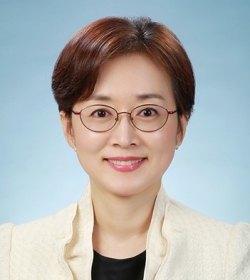Professor, Graduate School of Translation and Interpretation

I am staying in Sydney on my half-year study leave, which used to be called “sabbatical”. The notion of staying idle on sabbatical is from a bygone era. Relieved of teaching this semester, I have been doing research and recharging myself for the coming semesters. When people ask me what I am doing here, “working holiday” is a simple answer to help them understand the purpose of my visit. We are familiar with the concept of balance between work and life. But am I good at making a distinction between work and leisure? Well, not quite so. As an academic, my researching and teaching preparation often continue after normal business hours, so the line between work and private life is usually blurred. Technology also further erodes the work-life balance.
The COVID-19 pandemic has turned the world upside down and we are adjusting to the new normal. Since the outbreak gripped Australia in March, I have been in voluntary self-isolation. Since we can go out of the house for exercises, I take a walk in the neighbourhood. Because I am staying in one of the eastern suburbs of Sydney, I have the pleasure of walking along the coast and around a nearby cemetery established in the late 19th century. Despite some eerie feelings, being at an old graveyard with some old tombs damaged over time, I feel quite safe being away from living people, who might be carriers of the deadly virus. Indeed this is a special leisure activity for me at the moment, where I can relax and take a deep breath, feeling the fresh ocean breeze.
It was a timely choice for me to read The Pleasure of Leisure by Robert Deissaix at a time such as this. The author, one of the great Australian writers, explores the ways in which leisure has been viewed and pursued over time and invites us to make the most of our leisure time. Leisure is basically idleness, which also covers loafing, nesting, grooming and playing. It was something the common people could not afford in the pre-modern age. In those days the privileged class disapproved of idleness among those workers who sustained their privileges and labelled it simply as sloth. By contrast, according to the author, some thinkers have called idleness the highest form of life and for them, all work was slavery by another name. With the change of time, the technological development promised us more freedom from labour, but we live in a crazily busy world where time is money. Paradoxically, the harder we work, the less time we have to do what we want and enjoy. Why do we have less idle time? The author cites materialism as one of the contributing factors. Although it is fuelling the general addiction to work, we can still find new and better ways to making the most of our time. He suggests exercising individual freedom against the forces of conformity and consumerism that have gone overboard and reminds us that we should not waste our precious leisure time where we can truly be ourselves. ¬He states that at leisure, we are at our most intensely and pleasurably human.
We need to take leisure seriously and regain our freedom to enjoy life. We can start exploring what gives us pleasure, whether it be reading, walking without purpose, walking a dog, knitting a scarf or other items, taking a nap or just doing nothing. In times like this global public health crisis, when non-essential social activity is banned or discouraged, it gives us all the more reason to make us happy and enjoy our lives. Travel is certainly a great way to spend leisure, but it is not allowed until things become normal again.

